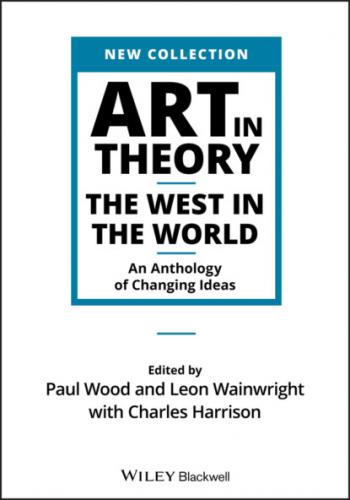Several steel chains of curious work from Spain.
Black Indian girdles made of Wampam peek, [‘Wampumpeag’ (Algonquin)] the best sort.
A bracelet made of thighs of Indian flies.
Purses of the barks and rinds of trees.
A purse made of a toad skin, a hand full long.
Virginian purses embroidered with Roanoake.
A coat lined with Agnus Scythicus [Scythian lamb, possibly astrakhan?].
West Indian thread.
XI [XII] Utensils
A Roman lamp.
A leather tobacco pipe.
A Guinea lantern.
Indian ladle.
Dishes of gourd shells, Indian.
Guinea drinking cups made of birch.
Indian pillow.
Chafing dish, gridiron, spits and to roast eggs and apples; all to be done with one fire, and all in a model of iron.
Desk for a book, rack to hang a cloak on, of carved whalebone.
Indian cradle.
An Indian hollow low stool.
An Indian little round table.
China ware, purple and green.
Mazer dishes.
Indian long pepper boxes.
Cup of rhinoceros, unicorn and albedo [narwhal?] horns.
Divers dishes of mother of pearl.
A branched candlestick turned in ivory.
An Indian dish made of excellent red earth, with a nest of snakes in the bottom. […]
Skates to slide with.
Hammocks, five several sorts.
A Portugal‐whisk of hair to beat away flies from horses and camels.
Tobacco pipes, 30 sorts from: Brazil, Virginia, China, India, Amazonia.
Visnago, a Spanish tooth‐picker.
Turkish tooth‐brush.
Gurgolets [long‐knecked earthenware vessel for keeping water cool] to pour water into their mouths without touching it.
Baskets to carry those gurgolets, Indian.
Plates made of rushes, Guinea.
Turks budget [leather pouch, or wallet].
A Turkish ink horn.
An Italian lock, custos pudicitiae [chastity belt].
An umbrella.
Ventilo’s [fans] of: Palm leaf, Turkish feathers, straw, leather, sedge.
Indian baskets 20 sorts.
German locks 6 sorts.
Fans of skin and rushes.
Tartarian saddle with stirrups of wood with a hollow wherein he keeps his meat always warm.
Divers sorts of Indian weights and scales.
Beads strung upon stiff wires, and set in foursquare frames wherewith the Indians cast account [abacus].
A Turk’s travelling bucket of leather.
An Indian leather case wrought in gold. […]
IC12 John Dryden (1631–1700) on the ‘Noble Savage’
Dryden’s play The Conquest of Granada was first performed in 1670 and published in 1672. Its elevated diction, undeviating format of rhyming couplets and lack of concern for any form of psychological or historical realism led to criticism even in its own day. The present short extract is included here because, for all its supposed shortcomings, the play represents the earliest recorded usage of a phrase that was to ring down the centuries and exert a powerful influence on the arts. The Conquest of Granada is not, however, about America, or Africa, but about the final defeat of the Moors and their expulsion from Spain almost two hundred years earlier, in 1492. Nonetheless, the hero, Almanzor, who has arrived incognito in the Moorish camp, is said to have hailed from Africa, and to have fought for the Moors at the battle of Fez, in Morocco. The famous passage spoken by Almanzor comes in response to the Moorish King Mahomet Boabdelin passing a sentence of death on him after a fight between different factions of the Moorish army. Ozmyn is another Moorish soldier. The extracts are from lines 188–91 and 201–9 of the play, on pp. 29–30 of The Works of John Dryden, vol. 12, Plays, ed. John Loftis and David Stuart Rodes, Berkeley: University of California Press, 1978.
Boab.
Kill him; this insolent Unknown shall fall,
And be the Victime to attone you all.
Ozmyn.
If he must die, not one of us will live,
That life he gave for us, for him we give….
Boab.
The word which I have giv’n, Ile not revoke;
If he be brave he’s ready for the stroke.
Almanz.
No man has more contempt than I, of breath;
But whence hast thou the right to give me death?
Obey’d as Soveraign by thy Subjects be,
But know, that I alone am King of me.
I am as free as Nature first made man
’Ere the base Laws of Servitude began
When wild in woods the noble Savage ran.
IC13 Aphra Behn (c.1640–89) from Oroonoko, or The Royal Slave
Oroonoko is a story which trades on the contemporary myth of the ‘noble savage’ (cf. IC12). The hero himself is slightly ambiguous, being a black African prince who receives a European education and is subsequently sold into slavery in America through the treachery of an English captain. There he leads a sort of double life, given the slave‐name ‘Caesar’ by his masters yet exempted from work and treated as a companion by the British because of his royal status. Eventually, however, he leads a slave revolt and, after again being betrayed, is captured, tortured and executed by the white colonists. Oroonoko is in many ways a feeble tale of doomed love and improbable coincidences, but Behn does manage to evoke simultaneously the dream and the nightmare of Europeans in the New World. The latter, in the shape of the slave revolt and Oroonoko/Caesar’s torture and death is too long and interwoven with narrative incident to admit of editing for the present anthology. However, the former, the dream‐myth of an Arcadian state of nature, occurs in condensed form at the beginning of the tale. Tellingly, it is a depiction not of the African slaves themselves, around whom the story revolves, but the indigenous inhabitants of Surinam, the ‘indians’, who are otherwise marginalized. Behn herself was briefly in Surinam in 1663–4, before returning to England and establishing a literary career during the Restoration. Oroonoko was first published in 1688. Our extract is taken from Aphra Behn: Oroonoko, The Rover and Other Works, edited by Janet Todd, Harmondsworth: Penguin Books, 1992, pp. 75–7.
Before I
